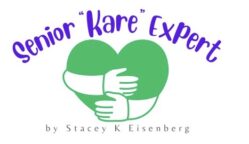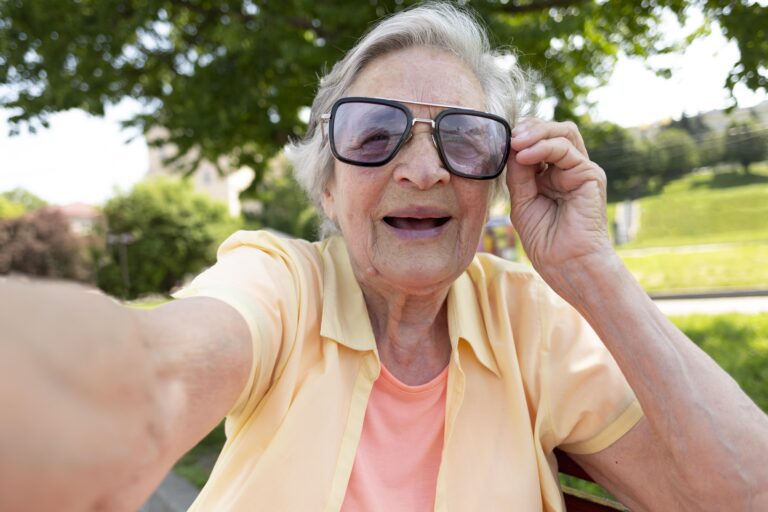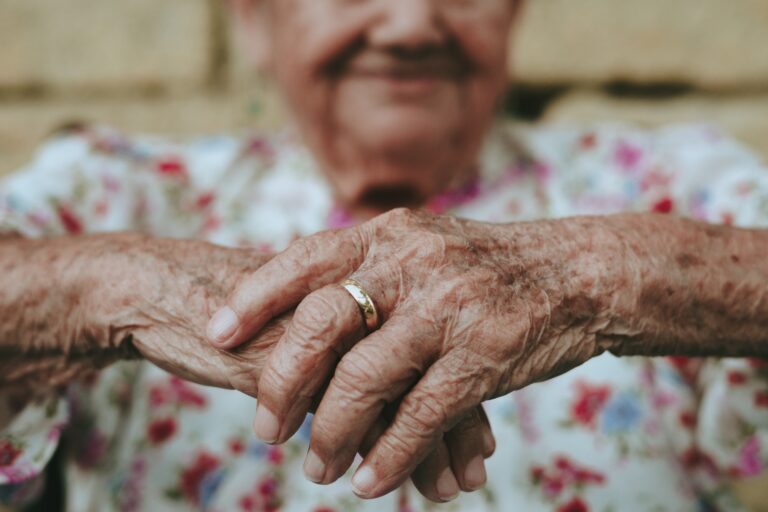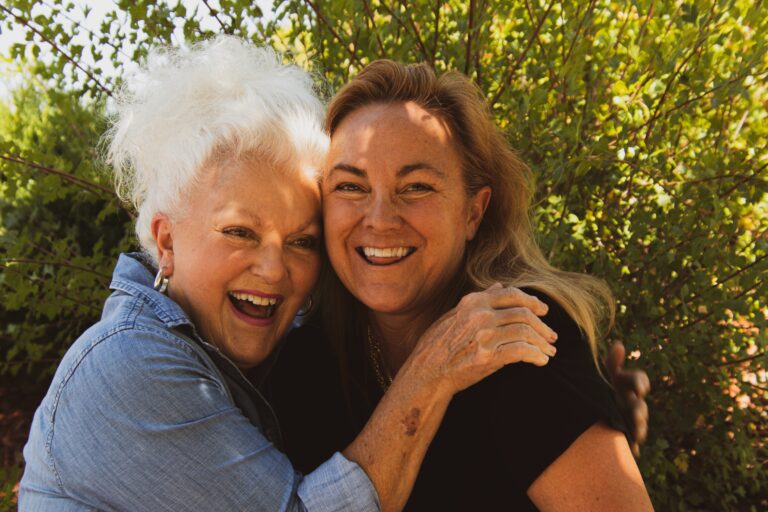As our loved ones grow older, they might need more help at home. Figuring out when they need this help is super important to keep them safe and happy. We’re going to explore the signs that show it might be time for some home care. By understanding the signs that indicate the need for assistance, we can make informed decisions and provide the appropriate support for our beloved seniors.
1. Difficulty with Activities of Daily Living (ADLs):
- Bathing: If your loved one has trouble getting in and out of the shower or bath, washing themselves effectively, or maintaining personal hygiene, this could be a sign. For instance, they may avoid bathing for days due to fear of slipping in the bathroom.
- Dressing: Difficulty with dressing might manifest as struggling to put on or take off clothes, forgetting to change clothes regularly, or wearing inappropriate clothing for the weather. An example could be wearing pajamas all day because it’s challenging to manage buttons or zippers.
- Grooming: This includes issues like forgetting to brush teeth, comb hair, or trim nails. A specific example is if your loved one has unkempt, long nails that could pose a risk of injury or infection.
- Toileting: Signs of toileting difficulties might include frequent accidents, inability to manage toilet paper or clean themselves properly, or experiencing discomfort while using the toilet. An example could be your loved one frequently needing assistance with cleaning themselves after using the toilet.
- Eating: Difficulty with eating could involve struggling to use utensils, forgetting to eat, or having trouble swallowing. For instance, if your loved one frequently chokes while eating and loses weight because they’re not getting enough nutrition, it’s a concerning sign.
If you notice your loved one having trouble with these basic daily tasks, experiencing accidents or hygiene issues, or neglecting their personal care, it’s a clear sign that they may require extra help and support with Activities of Daily Living (ADLs).
2. Decline in Cognitive Abilities:
- Forgetfulness: Your loved one might frequently forget important appointments, events, or even recent conversations. For instance, they might forget where they placed their keys or glasses multiple times a day, causing frustration.
- Confusion: Confusion could manifest as your loved one struggling to recognize familiar faces, places, or objects. For example, they might not recognize close family members or become confused about the layout of their own home.
- Disorientation: Signs of disorientation may include getting lost in familiar surroundings, such as taking a walk in their neighborhood and not being able to find their way home. This can be very distressing for them and a cause for concern.
- Difficulty Managing Daily Tasks: Your loved one may struggle with tasks they once handled easily, like cooking a simple meal or paying bills. For instance, they might forget how to operate the stove or consistently make mistakes in balancing their checkbook.
- Memory Loss: Significant memory loss might mean forgetting important life events, like anniversaries or family members’ names. They might not recall recent or distant memories, which can be emotionally challenging for them and their loved ones.
- Trouble with Problem-Solving and Decision-Making: Your loved one may find it increasingly difficult to solve simple problems or make decisions, even ones they used to manage effortlessly. For example, they might struggle to figure out how to organize their daily schedule or make financial choices.
If you notice any of these signs, especially if they are affecting your loved one’s safety or their ability to perform daily activities, it may be a clear indication that they require home care assistance. This assistance can provide the necessary supervision and support to ensure their well-being and help them navigate the challenges of cognitive decline.
3. Poor Medication Management:
- Forgetting to Take Medications: Your loved one might frequently forget to take their prescribed medications. For instance, they might miss doses of essential medications for chronic conditions like diabetes or heart disease, leading to health complications.
- Taking Incorrect Dosages: They may also struggle to remember the correct dosages, which can be dangerous. For example, they might take double doses by accident or take medications at the wrong times, affecting their treatment effectiveness.
- Experiencing Adverse Effects: If your loved one experiences adverse effects or side effects due to medication errors, it’s a concerning sign. For instance, they might become dizzy or nauseous because they took medications on an empty stomach when it should have been with food.
- Complex Medication Regimens: Managing multiple medications with different schedules can be overwhelming. Your loved one might find it challenging to keep track of which pills to take when. This complexity can lead to errors in their medication routine.
- The Role of Caregivers: Home care assistance can be invaluable in this situation. Caregivers can help by organizing medications into daily pill organizers, providing timely reminders, and ensuring the correct administration. They can also monitor for any side effects or adverse reactions.
If your loved one consistently forgets medications, takes incorrect dosages, experiences adverse effects, or has a complex medication regimen that’s difficult to manage independently, it’s time to consider home care assistance. Caregivers can play a crucial role in ensuring proper medication management, reducing the risk of medication-related complications, and improving your loved one’s overall well-being.
4. Decline in Physical Health:
- Unexplained Weight Loss: If your loved one is losing weight without any apparent reason, such as a change in diet or exercise, it could be a sign of a health issue. For instance, they might be struggling to prepare and eat meals, leading to unintentional weight loss.
- Limited Mobility: Difficulty moving around, getting out of chairs, or walking short distances can be an indicator. Your loved one might need assistance with tasks that require physical effort, like climbing stairs or getting in and out of the bathtub.
- Frequent Falls or Accidents: Repeated falls or accidents can signal declining physical abilities. For example, if they’ve had multiple slips and falls in their home, it’s a concerning sign for their safety.
- Chronic Pain: If your loved one is experiencing persistent pain, especially if it hinders their daily activities, it’s a red flag. Chronic pain conditions like arthritis can make it challenging to manage independently.
- Difficulty Managing Chronic Health Conditions: If your loved one has chronic health conditions like diabetes or hypertension and they are having trouble keeping these conditions in check, it may be time for additional support. For example, they might forget to take their insulin or struggle to monitor their blood pressure regularly.
- Neglecting Personal Hygiene: Neglecting personal hygiene, which we mentioned above,can indicate difficulty in self-care. This might be due to mobility issues or cognitive decline.
If you observe noticeable changes in your loved one’s physical health, such as unexplained weight loss, limited mobility, frequent accidents, chronic pain, or struggles in managing chronic health conditions, it’s a clear indication that they may require extra support and care at home. Home care assistance can provide the necessary help to maintain their well-being and ensure their safety.
5. Social Isolation and Loneliness:
- Limited Social Interactions: If your loved one has few interactions with friends, family, or neighbors, it could be a sign of social isolation. For instance, they may spend most of their time alone at home with minimal contact with others.
- Withdrawal from Enjoyable Activities: If they start avoiding activities they once enjoyed, like hobbies, social gatherings, or clubs they used to be a part of, it’s a clear sign. For example, they might stop going to their weekly card game with friends due to feelings of isolation.
- Expressing Loneliness: If your loved one openly expresses feelings of loneliness or talks about missing companionship, it’s an important indicator. They might say things like, “I feel so lonely these days” or “I wish I had someone to talk to.”
- Companionship and Support: Home care assistance can be invaluable in addressing these issues. Caregivers can provide companionship by engaging in conversations, playing games, or simply being there to listen. They can also accompany seniors on outings, like visits to the park or community events, to help them stay connected.
- Facilitating Social Connections: Caregivers can help seniors make new friends or reconnect with old ones. For example, they might assist in setting up video calls with family members or encourage participation in local senior groups or events.
If your loved one is socially isolated, shows signs of withdrawal from enjoyable activities, or expresses feelings of loneliness, home care assistance can provide companionship and support. Caregivers play a crucial role in combating loneliness by engaging in meaningful interactions, facilitating social connections, and promoting the overall well-being of seniors.
6. Safety Concerns and Home Hazards:
- Tripping Hazards: Inspect the living spaces for tripping hazards, such as loose cords, clutter on the floor, or items left in pathways. For instance, a protruding electrical cord in a walkway could lead to a fall.
- Cluttered Pathways: Check if there is excessive clutter or obstacles in the common areas. A cluttered hallway or living room could make it challenging for your loved one to move safely.
- Loose Rugs: Loose rugs that are not properly secured can easily cause falls. Ensure that all rugs are firmly anchored to prevent slipping or tripping.
- Functionality of Safety Features: Assess the functionality of handrails, grab bars, and bathroom safety features. For example, if a bathroom grab bar is loose or damaged, it poses a significant safety risk when your loved one attempts to use it.
- Household Chores: Take note of whether your loved one can keep up with household chores. If they are struggling to maintain a clean and organized living environment, it could be a sign that they need assistance.
- Home Maintenance: Difficulty with home maintenance tasks, such as changing light bulbs, fixing leaky faucets, or ensuring the heating and cooling systems work correctly, can also indicate a need for assistance.
It’s crucial to be vigilant about safety concerns and hazards within your loved one’s home. This includes checking for tripping hazards, clutter, and the functionality of safety features. If your loved one is unable to manage household chores or maintain their living space, it’s an important indication that they may require home care assistance to create a safe and hazard-free environment for them to live in.
7. Increased Caregiver Burden:
- Feeling Overwhelmed: If you, as the primary caregiver, often feel overwhelmed by the demands of caregiving, it’s a clear sign. For example, you might struggle to balance caregiving responsibilities with your own life and work.
- Stress: Experiencing chronic stress due to caregiving responsibilities can have adverse effects on your physical and mental health. Signs may include sleep disturbances, anxiety, or mood swings.
- Burnout: Persistent feelings of burnout, which might manifest as exhaustion, detachment, or a sense of hopelessness, indicate that caregiving has become unsustainable in its current form.
- Quality of Care: If your own well-being is compromised due to caregiving stress, it can negatively impact the quality of care you provide to your loved one. For instance, you might become irritable or less patient.
- Balancing Self-Care: Seeking home care assistance can provide relief and allow you to focus on self-care. This might include taking breaks, pursuing hobbies, or simply having time for relaxation.
- Maintaining Healthy Dynamics: Bringing in additional assistance can help maintain a healthy caregiver-family member dynamic. It reduces the likelihood of caregiver burnout and potential strain on your relationship with your loved one.
If you, as the primary caregiver, feel overwhelmed, stressed, or burnt out, it’s a clear indication that additional home care assistance is necessary. This assistance can alleviate the caregiving burden, allowing you to prioritize your own well-being and maintain a healthy caregiver-family member relationship.
When in doubt, seek a professional assessment from a healthcare provider or home care agency. They can conduct a comprehensive evaluation of your loved one’s needs and recommend the appropriate level of home care assistance. You may find a couple of hours several times a week with an in-home caregiver could provide much comfort and security. Healthcare professionals have experience in identifying signs that may not be immediately apparent, ensuring that your loved one receives the necessary support and care they require.
Recognizing the signs that your loved one needs home care assistance is crucial for their safety, well-being, and overall quality of life. Paying attention to difficulties with Activities of Daily Living (ADLs), cognitive decline, poor medication management, physical health changes, social isolation, safety concerns, increased caregiver burden, and seeking professional assessments are essential steps in identifying the need for home care. By being proactive and responsive to these signs, you can ensure that your loved one receives the appropriate support and care they deserve. If you are in the North Austin area, please feel free to reach out to me or my team.
Image by Freepik

From a young age, Stacey’s link to the senior care industry grew alongside her mother’s work at a nursing home, where she often accompanied her. By her early teens, she secured her first official job at a nursing home, laying the foundation for a profound journey in senior care spanning over four decades. Her roles varied from opening assisted living and memory care residences to working in nursing homes and independent senior living communities. As the former Director of Fun for 300 independent seniors, she expertly organized daily events and trips. Stacey’s unwavering passion, nurtured by her family, and professional dedication as a recreation therapist, reflect her deep commitment to preserving the dignity and well-being of seniors.
Stacey’s senior care expertise has been recognized by the media including U.S. News and World Report and Care.com.
Stacey and her husband Bryan are the owners of the senior in-home care agency A Place At Home – North Austin.




